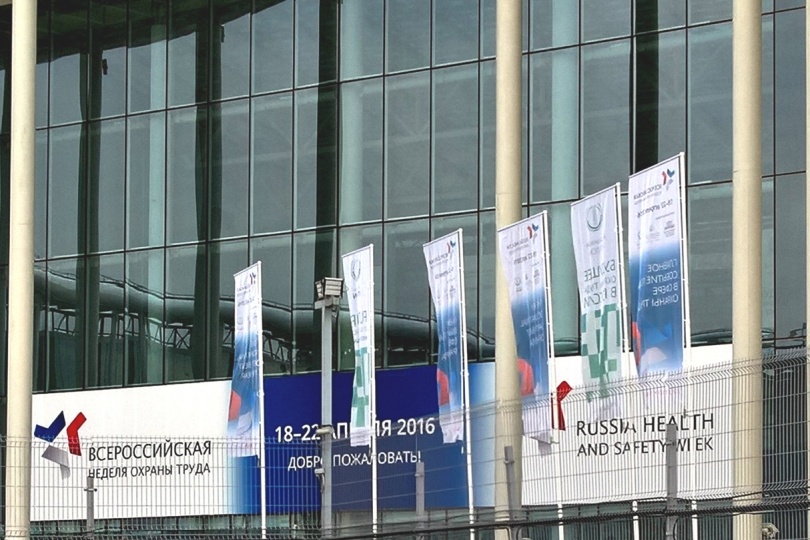
HSE hosts discussion of draft section of regulatory policy on the Country Development Strategy Until 2024
On 27 September, NRU HSE hosted a round-table discussion, titled Discussion by the regulatory policy bloc of proposals for the Russian Strategic Development Strategy for 2018 – 2024, held under the auspices of the Centre for Strategic Developments and the Institute for Public Administration and Governance, as part of work, performed by IPAG under the government assignment Development of proposals for individual aspects concerning improvement of public administration(for the CSD).
Rebooting the matrix: how to rid business and society of unnecessary rules
CSD Vice-president Maria Shklyaruk and Director of the RIA Centre Daniil Tsygankov have written a column in the RBC on the directions and prospects of regulatory policy in Russia.
IPAG RIA Centre Director gives interview to Zakonodatelstvo magazine
A discussion with Daniil Tsygankov on how the practice of regulatory impact assessment came into being, what approaches exist to implement it, how RIA procedures are applied in Russian and much more.

A punishing robustness: the nature of an administrative tribunal
The Centre for Strategic Developments is proposing a decisive regulatory reform, in line with the working materials of the Country Development Strategy 2018–2024, discussed at the CSD on 8 June. One of the ideas is to create an administrative tribunal of 7–9 people, which will do away with so-called “sticking points in the law”, meaning omissions in enactments, superfluous and contradictory norms. There is currently no effective means for their repeal, but such a tribunal would give impetus to deregulation in 3–4 years, the CSD believes.
An article in the Kommersant newspaper contains the opinions of Director of the NRU HSE IPAG RIA centre Daniil Tsygankov and other experts.
Import substitution comes knocking on Windows
Public authorities appear wholly unable to introduce import substitution into software. This is the second time this year that the procurement of computers with Microsoft software for the Internal Affairs Ministry has raised questions at the Federation Council. They believe that the department turned away without just cause from similar, domestically produced software. Experts point to a loophole: Officials are currently not prevented from procuring foreign computers, the manufacturers of which install the software themselves. The opinion of leading expert from the Institute for Public Administration and Governance of NRU HSE Dmitry Kozhevnikov and other specialists can be found in newspaper article in Kommersant.
RIA Centre Director Presents Report at a Conference of the Association of Specialists in Program and Policy Evaluation in Novosibirsk
RIA Centre Director Daniil Tsyankov spoke at the 2nd annual conference of the Russian Association of Specialists in Program and Policy Evaluation "Program and Policy Evaluation in a Time of Crisis: Challenges and Opportunities" in Novosibirsk.
Total Import Substitution Imposed on Mobile Operators
To ensure state sovereignty of the Russian Federation by as early as 2020, networks of Russian communications operators and data centres shall consist of 85% equipment domestic manufacturers. Such is the proposal contained in the "roadmap", drawn up by the working group under the Russian presidential administration.
Leading expert from the Institute for Public Administration and Governance at NRU HSE Dmitry Kozhevnikov notes after studying the document that analysis of the current situation in the industry within this "roadmap" seems somewhat partisan, as it concentrates on foreign economic factors, while the indicators and their dynamic appear contrived.
Practical Aspects of Cooperation with OECD
IPAG Director Andrey Klimenko spoke at the Russian Ministry of Economic Development training workshop called “Practical Aspects of Cooperation with OECD”. The objective of the workshop was to familiarise the heads of federal executive agencies and their divisions with the work of the OECD, OECD standards and recommendations in a number of spheres of public administration and regulation, and the tasks facing the Russian Federation as a state acceding to the OECD.
Prospects of State Regulation
A round table was held as part of the 17th April International Conference under the title of “Future Regulation”, dedicated to the problems and prospective directions of development of the state's regulatory policy. The discussion involved V.A. Zhivulin (Russian Ministry of Economic Development) E.A. Makhortov (SCA), Yu.A. Tikhomirov (Institute of Legislation and Comparative Law), A.V. Varvarin (Russian Union of Industrialists and Entrepreneurs), R.N. Korchagin (Russian Presidential Academy of National Economy and Public Administration), V.A. Kharchenko and V.A. Maslakov (NISSE), D.B. Tsygankov (NRU HSE), with Director A.V. Klimenko (NRU HSE) acting as moderator.

Self-control technology in the occupational safety system
On 20 April Andrey Klimenko took part in the Russian Occupational Safety Week in Sochi as the moderator of the plenary discussion “New Online Service for the Russian Federal Service for Labour and Employment. Will the Electronic Inspector replace the inspector who visits us to conduct an inspection?”
